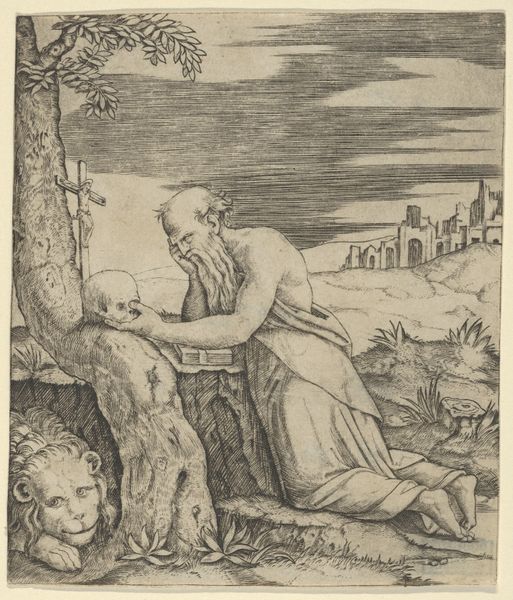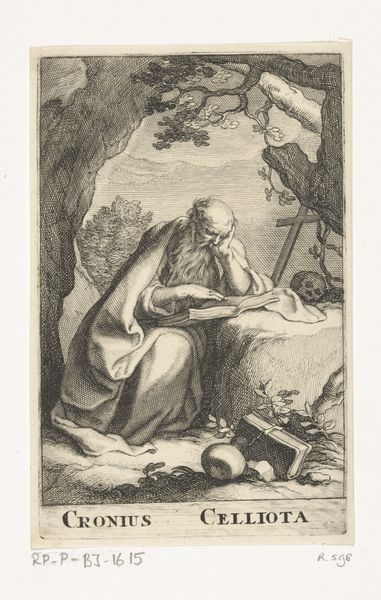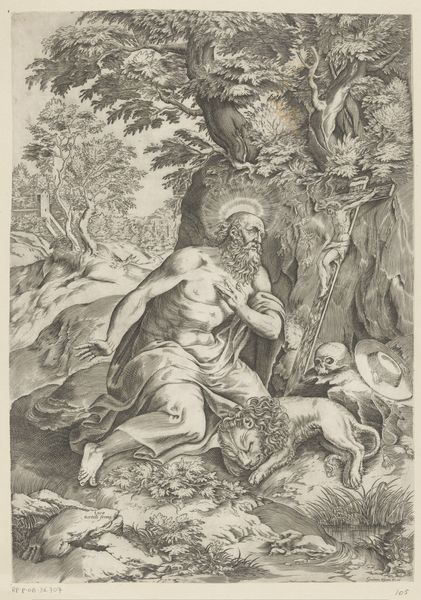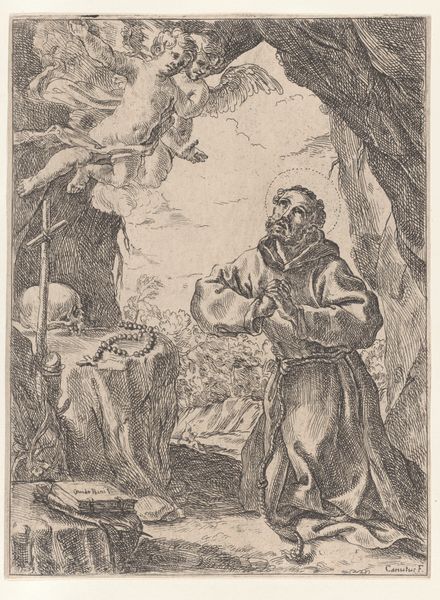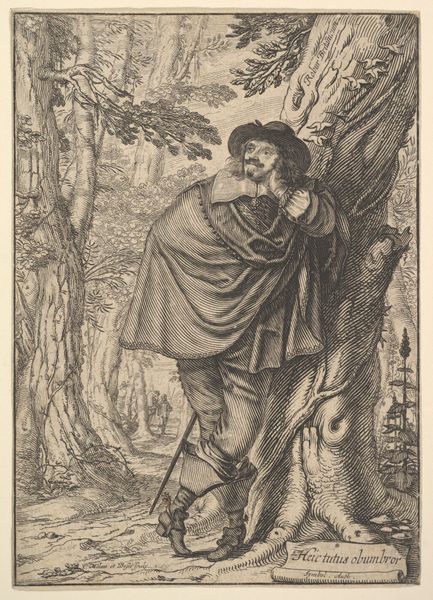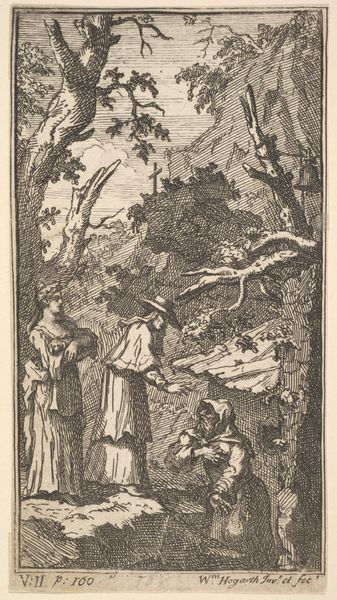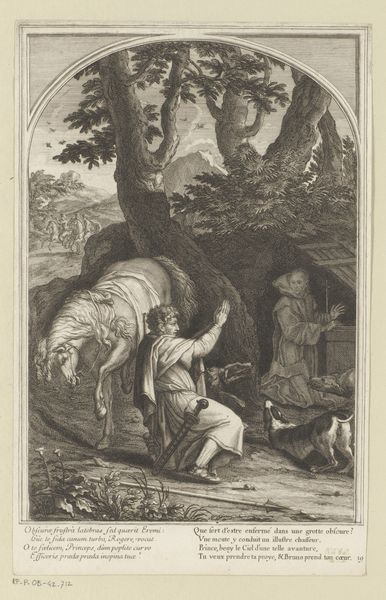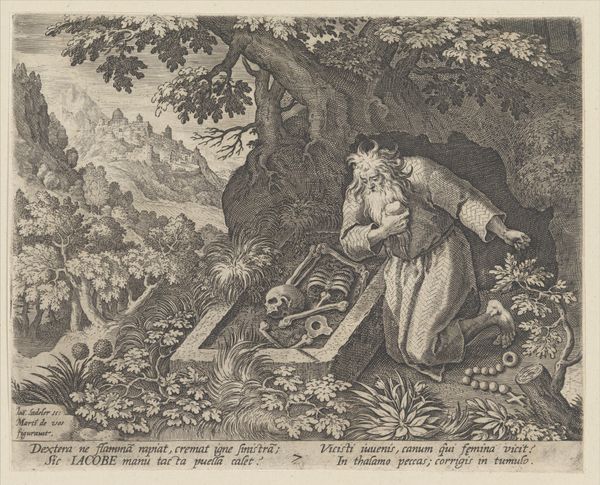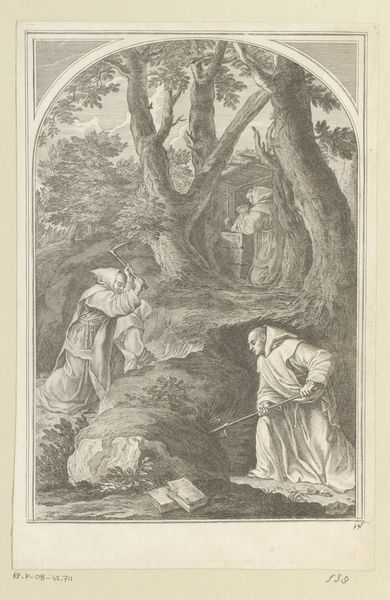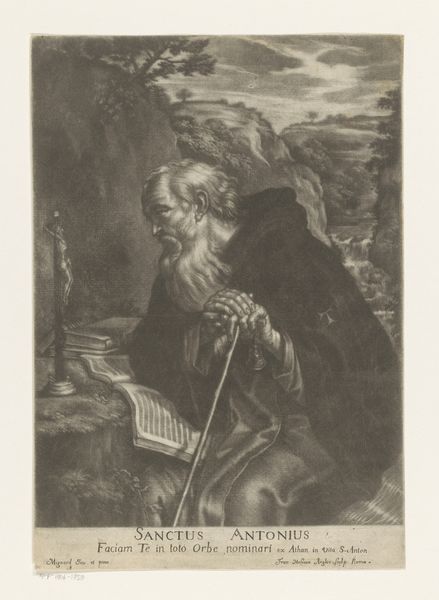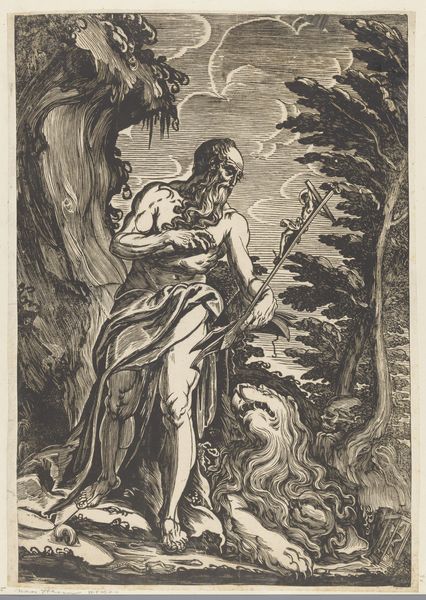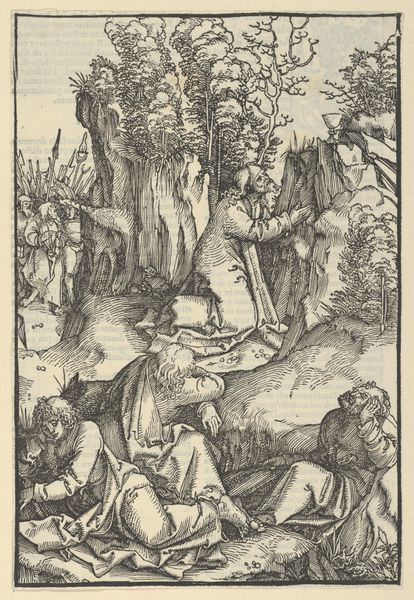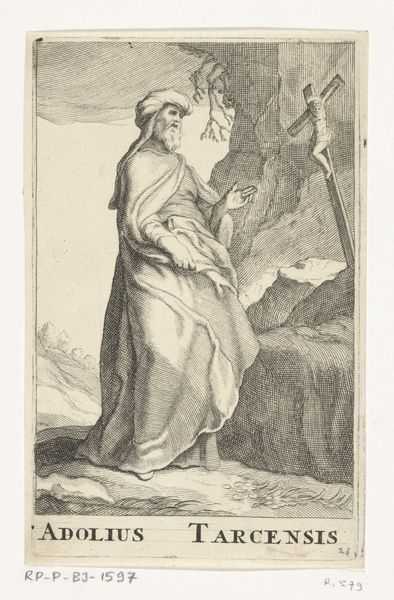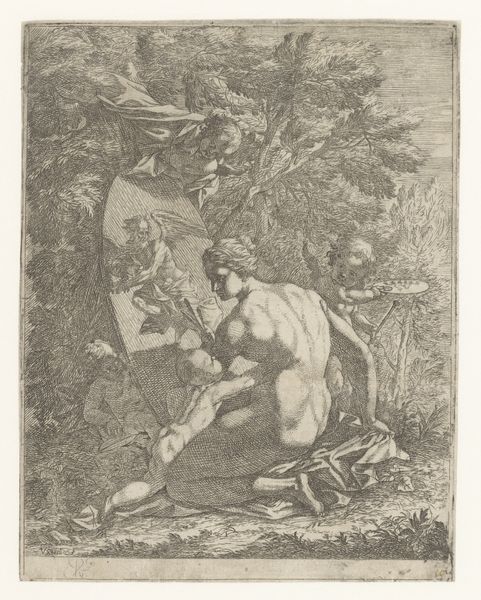
engraving
#
baroque
#
landscape
#
figuration
#
history-painting
#
engraving
Dimensions: height 206 mm, width 143 mm
Copyright: Rijks Museum: Open Domain
Louis Cossin created this print of a Landscape with a Hermit, likely sometime in the late 17th century. The seemingly simple black lines on white paper are achieved through the technique of etching. The artist would have coated a metal plate with wax, then used a needle to draw the composition, exposing the metal beneath. This plate was then submerged in acid, which bit into the drawn lines. The longer the acid bath, the deeper and darker the lines would appear when printed. Consider the implications of this indirect process. While the artist physically draws the image, the corrosive action of the acid is what ultimately defines the result. There is a degree of remove, even delegation, in the making. The fine details, seen in the hermit’s beard and the surrounding foliage, belie the amount of labor invested. This etching exemplifies how prints allowed for the wide distribution of images, fueling a growing market for art and information. It blurs the line between unique artwork and mass-produced commodity, inviting us to reconsider the social context of its creation.
Comments
No comments
Be the first to comment and join the conversation on the ultimate creative platform.
